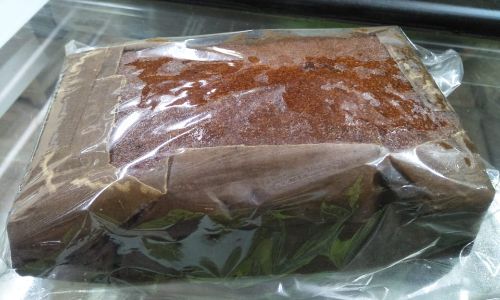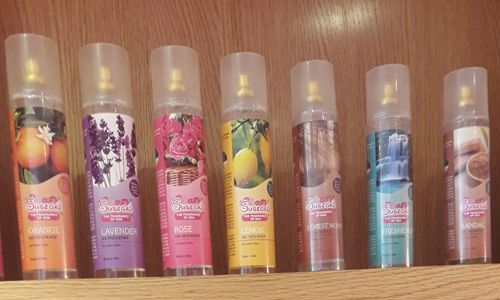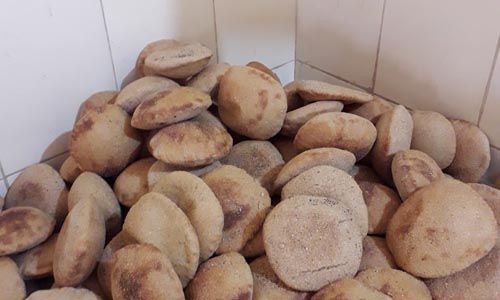Are organic foods expensive? David Gower admits they are. Because it is elitist, you don't get the same comparable yields as the farmer using fertilizer gets. "I also don't grow high yielding crops, only traditional grains, so you have a bigger expense sheet. Also organic farmers don't get access to the usual transportation system," he says.
July 29-August 4, 2013
Lionel Messias
At 65, David Gower (“not to be confused with the cricketer, I was born before him”) might have “been a foreigner wherever I lived” – but in the 17 straight years that he has spent in Goa, he appears to have found his mission possibly, even his passion in life - organic foods. When we met at his residence cum packaging unit in Vaddy, Siolim, he showed me a list of 44 organic cereals, rice, honey etc he had finalized for 2013-14 including several he had hitherto not sold; which he was about to distribute to vendors in Pune. The list also included four pastas (wheat, spinach, carrot, beetroot) he is going to introduce. There list included not easily found items too like amaranth popped (like in popping of popcorn). Considered to be the fruit if a plant and not a grain; say hello to daily protein needs with complex carbohydrates, as a substitute to animal protein, which often comes packaged with fat and cholesterol.
The interesting thing about the organic business in Goa is that over the past three years, Goans have shown an interest in it, David Gower says. Till then it was only the settlers, the moneyed, sophisticated, second-home owners living in Goa who were earnest about organic.
His umbrella firm, Ambrosia, consists of a ten acre Ambrosia farm in which his participation is largely financial and is located in Changad (125 km from his home) half way to Belgaum on the Amboli route, run by friends- the Phimister family; and Ambrosia Organic Farm Pvt. Ltd in Siolim.
"We farm on only six acres. My first goal was to make it self-sustaining which I achieved in ten years," he says. David made his mark in lettuce -two acres of it - but, 'not before trying out many things and failing in many things'. Eventually, when he began looking for 'something exotic' because Goa would be the market, he picked lettuce and has not looked back since. Today, they grow several varieties of lettuce and their success convinced many farmers to follow suit. Closer to lettuce, they also grow rucola or salad rocket. "Unfortunately, lettuce is a winter crop, so we had to diversify," he says.
Growing organic menu
For instance the Ragi they sell is grown year-round and the final product sweetened with golden sugar (sugarcane jiggery). Last year, Ambrosia became a 12-month production farm and produces between 1 to 1.5 tons of rice. Next, under the hoe are organic vegetables and will be kicked-off in November. What you could find on your table from the Ambrosia farm come the year-end are onion, potato, carrot, cabbage, beetroot and French beans. "We are staying away from leafy vegetables which are perishable," he says. Claiming to follow fair trade practices, David says 40 per cent of his MRP goes to the farmer, 20 per cent to the retailer, five per cent as VAT, five per cent towards transport costs and five per cent as packaging costs. That's a total of 75 per cent. "The balance is my profit," he says.
Are organic foods expensive? David admits they are. Because it is elitist for one, on the other hand, you don't get the same comparable yields as the farmer using fertilizer gets. In organic farming it takes seven years at least. "I also don't grow high yielding crops, only traditional grains, so you have a bigger expense sheet. Also organic farmers don't get access to the usual transportation system used by farmers for a number of reasons," he says.
Repairing the land
According to David it can take seven years to restore land for organic farming, because you must first repair the land, you need to replace the microorganisms burnt out over a period of time by the use of N-P-K (nitrogen, phosphorous, and potash (potassium) fertilizer. "Over the years, we have used compost made in our own composting facility, also vermin-compost we have one of the largest units in Belgaum, producing 30 tons annually. Also animal waste, but we can't use poultry waste because of the antibiotics and hormones injected into farm poultry these days," he says.
Over the years Ambrosia has also built up a network of organic farmers in Himachal Pradesh, Karnataka, Maharashtra, Ladakh and other states from where he outsources grains to Himalayan rock salt and honey. Soon it will begin an online marketing arrangement where pre-specified quantities can be ordered and the order sent to the concerned farmer.



